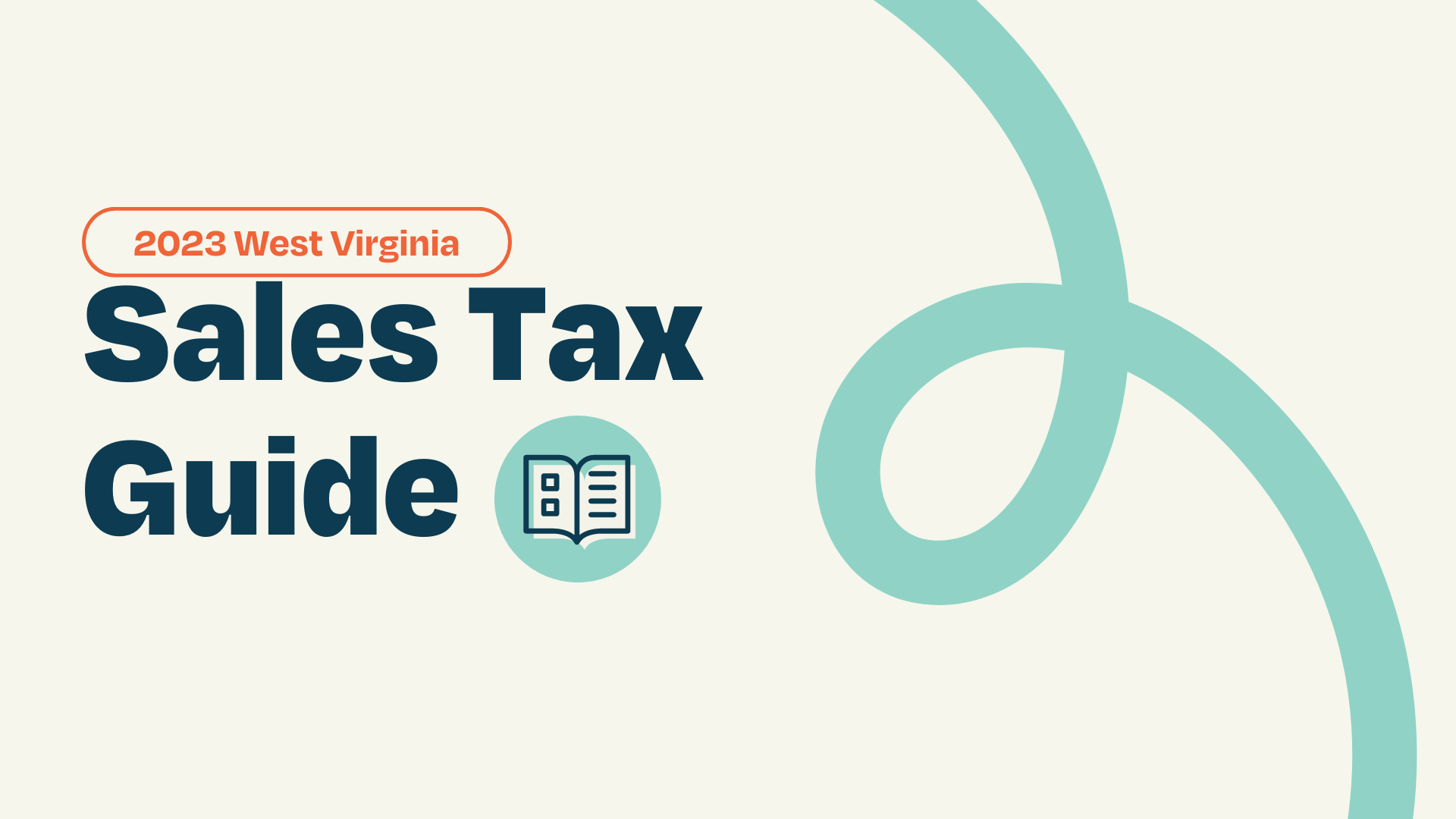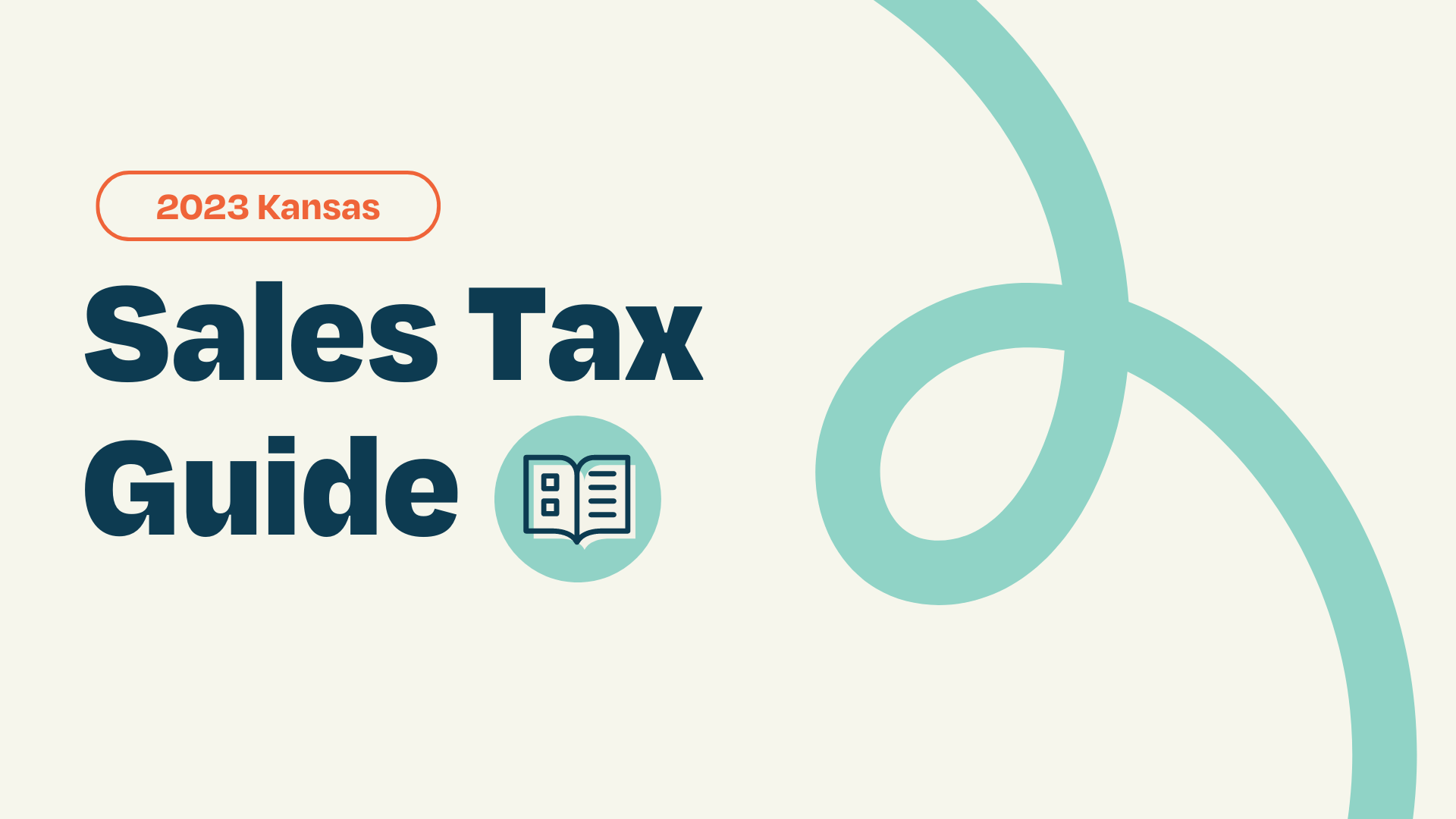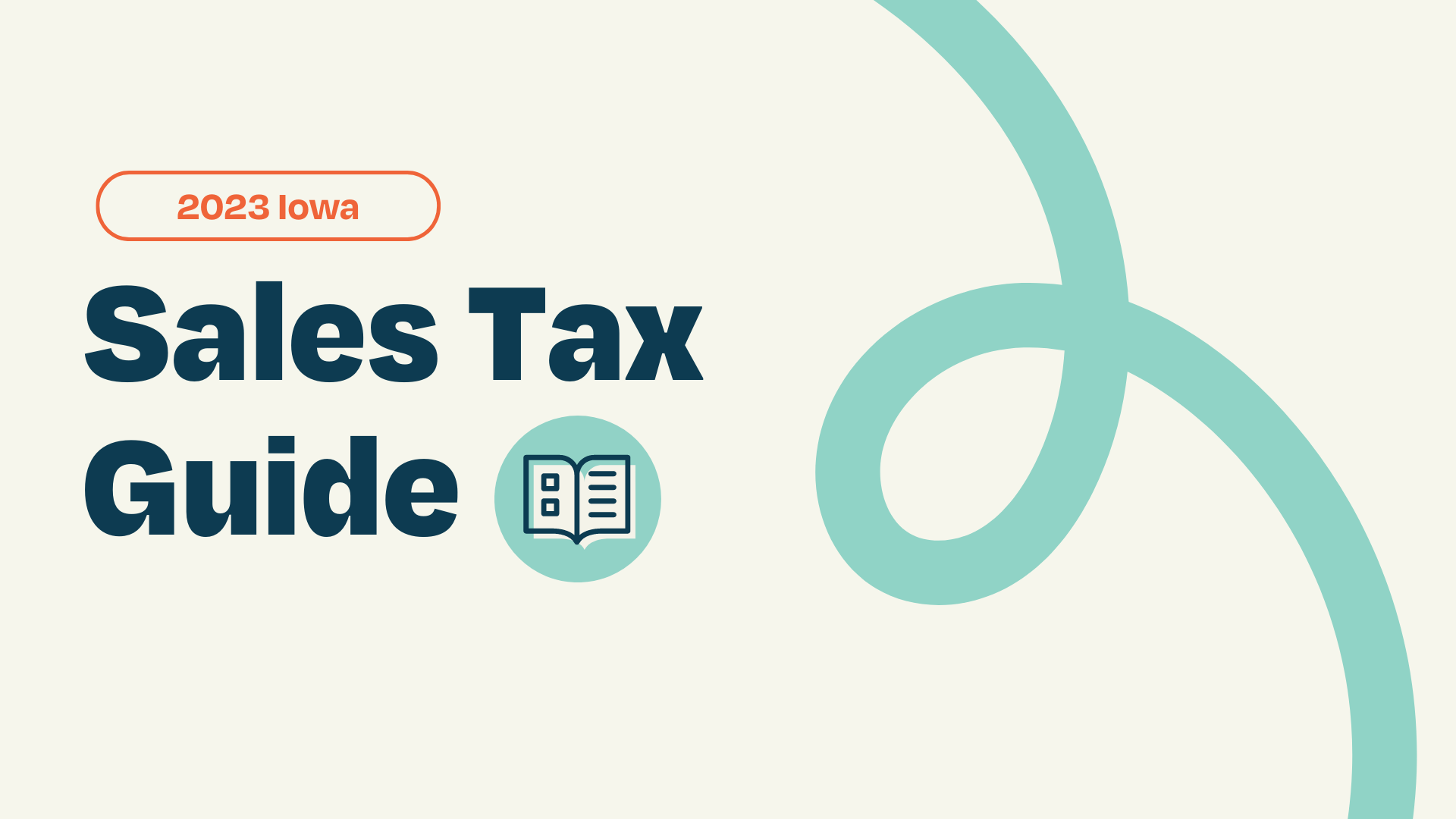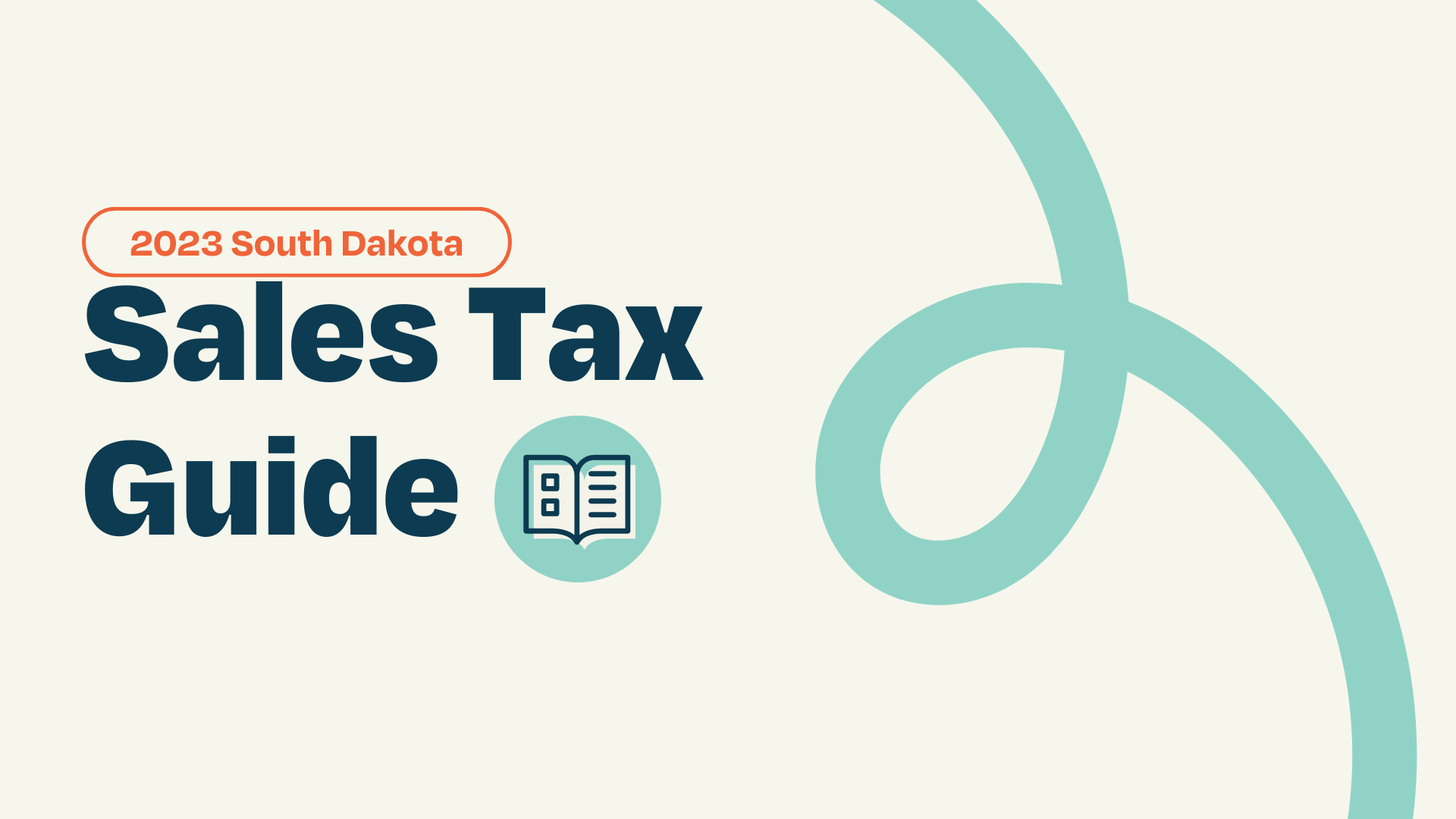1 min read
Kansas 2023 Sales Tax Guide
Kansas Sales Tax in a Word Welcome to the Accountingprose Kansas Sales Tax Guide, your go-to resource for navigating the ins and outs of sales tax...

Welcome to the wild and wonderful world of West Virginia sales tax! Like navigating the state's mountainous terrains, understanding the intricacies of sales tax can be quite an adventure. Whether you're questioning your nexus, puzzling over registration, or figuring out the best way to file and pay, we're here to guide you through every twist and turn.
So, lace up your hiking boots and let's embark on this journey together, armed with tips to avoid common pitfalls and achieve a smooth, error-free sales tax filing experience.
|
Table of Contents |
Navigating the labyrinth of sales tax can sometimes feel like trying to find your way through the dense West Virginia woods. But take heart! Just as every hiker knows the value of a trusty map and compass, every business owner can lean on a handy list of contacts.
The West Virginia State Tax Department is the ranger guiding us on our sales tax hike. This agency is responsible for overseeing the collection and management of sales tax in the Mountain State.
Here's how to get in touch:
|
Mailing Address |
West Virginia State Tax Department, Revenue Center 1001 Lee St E Charleston, WV 25301 |
|
Phone Numbers |
(304) 558-3333 toll-free at 1-800-982-8297. |
|
|
TaxHelp@wv.gov |
|
Website |
West Virginia State Tax Department |
The concept of nexus is a bit like a secret handshake—it's your business's unique connection to a state that sets the stage for your sales tax obligations. But what exactly establishes this connection in West Virginia? Let's decode the nexus mystery together.
In West Virginia, several factors can create a sales tax nexus. Just like different paths leading to the same scenic overlook, different types of nexus can all bring you to the same sales tax obligations.
Physical nexus in the state of West Virginia is created when a seller has a physical presence in the state, such as a warehouse or office. The West Virginia State Tax Department has established the following activities that create physical nexus:
Having an office, distribution house, sales house, warehouse or other place of business in West Virginia.
Having employees operating or soliciting sales or advertising within the state under the authority of the vendor or its subsidiary, regardless of whether the place of business or agent is located in the state permanently or temporarily.
Having representatives in the state performing warranty repairs.
Storing inventory in West Virginia for the purpose of making sales in the state.
Attending a trade show in West Virginia for the purpose of taking orders or making sales.
If a seller engages in any of these activities, they will be considered to have physical nexus in West Virginia and will be required to collect and remit West Virginia sales tax on all sales that are made to customers in the state.
Economic nexus in the state of West Virginia is created when a seller has a certain amount of economic activity in the state, such as having sales or customers in the state. The West Virginia State Tax Department has established the following thresholds for economic nexus:
$100,000 in gross sales, or
200 or more separate transactions for delivery into the state in the current or immediately preceding calendar year.
If a seller meets either of these thresholds, they will be considered to have economic nexus in West Virginia and will be required to collect and remit West Virginia sales tax on all sales that are made to customers in the state.
It is important to note that economic nexus is different from physical nexus. Physical nexus is created when a seller has a physical presence in a state, such as a warehouse or office. Economic nexus is created when a seller has a certain amount of economic activity in a state, regardless of whether the seller has any physical presence in the state.
Affiliate nexus in the state of West Virginia is created when an out-of-state seller has a related party in West Virginia that performs certain activities on behalf of the seller. These activities include:
Advertising or promoting the seller's products or services in West Virginia.
Selling the seller's products or services in West Virginia.
Soliciting sales of the seller's products or services in West Virginia.
If an out-of-state seller has an affiliate in West Virginia that performs any of these activities, the seller will be considered to have affiliate nexus in the state and will be required to collect and remit West Virginia sales tax on all sales that are made through the affiliate.
Click-through nexus in the state of West Virginia is not a legal concept. As of July 2023, the only way for an out-of-state seller to establish sales tax nexus in West Virginia is through economic nexus or affiliate nexus.
Marketplace nexus in the state of West Virginia is created when a marketplace facilitator has either:
$100,000 in gross sales or 200 or more separate transactions for delivery into the state in the current or immediately preceding calendar year.
Has physical presence in West Virginia, such as a warehouse or office.
Marketplace facilitators are required to collect and remit West Virginia sales tax on all sales that are made or facilitated through their platform, regardless of whether the seller has a West Virginia sales tax permit or otherwise would have been required to collect sales tax if the sale had not been facilitated by the marketplace facilitator.
Yes, West Virginia does have use tax laws. Use tax is like the flip side of the sales tax coin—it applies to purchases made outside the state for use within West Virginia, where sales tax hasn't been collected. So, if you're buying business equipment from out-of-state, be prepared to pay the piper, or in this case, the use tax.
Understanding nexus in West Virginia can be a bit like a challenging hike, but with the right map and compass—or in this case, the right knowledge and advice—you can navigate it successfully. Remember, when in doubt, consult a tax professional. They're the seasoned guides who can help you find your way.
Just as every adventure requires some preparation, venturing into the world of sales tax also requires registration. Think of it like your business's passport to commerce in the Mountain State. But how exactly do you register for sales tax in West Virginia? Let's dive into the details.
Registering for sales tax in West Virginia is like packing for a long hike—you need to be prepared and know what you're doing. Fortunately, West Virginia has made the process pretty straightforward, and it can be done online.
Here's your step-by-step guide to register for sales tax in West Virginia:
Start Your Journey at the Business for West Virginia Website: This is the starting point of your sales tax registration journey. Visit the Business for West Virginia website at www.business4.wv.gov.
Create an Account: Just like setting up a camp base, you'll need to create an account. Click on the "Begin West Virginia Business Registration" link to get started.
Fill Out the Online Form: This is the main part of your journey. Carefully fill out the online form with all the requested information. This includes details about your business such as the legal structure, the nature of your business, and your projected monthly sales.
Review and Submit: Just as you'd double-check your hiking gear, review all the information carefully to ensure it's correct. Then, submit your application.
Wait for Confirmation: After you've submitted your application, sit back and relax. You'll receive a confirmation of your submission, and within a few weeks, you should receive your sales tax permit. This is like your official hiking badge!
The good news is, registering for a sales tax license in West Virginia is as free as a bird soaring over the Appalachian Mountains. There's no cost to apply for a sales tax permit in West Virginia.
Yes, you do need a Federal Tax ID Number or EIN to register for a West Virginia Sales Tax License. Think of it as your business's unique identifier, like a hiker's GPS coordinates. It's how the tax authorities know exactly who you are.
Depending on the nature of your business, you might need to register with additional agencies in West Virginia.
Here are a few key ones:
West Virginia Secretary of State: If you're planning to form a corporation, LLC, partnership, or non-profit organization in West Virginia, you'll need to register your business with the Secretary of State. They're a bit like the trailhead of your business hike.
West Virginia State Tax Department: Apart from sales tax, you may need to register for other state taxes like employer withholding tax or unemployment insurance tax. Think of the state tax department as the various checkpoints along your hike.
West Virginia Department of Labor: If you have employees, you might need to register with the Department of Labor for worker's compensation and compliance with labor laws. It's like ensuring you have the right gear for the safety and well-being of your fellow hikers.
Local City or County Agencies: Depending on your business location and type, you may also need to register with local city or county agencies for zoning permits, business licenses, or health permits. It's like getting permission to set up camp in certain areas of your hike.
Collecting sales tax in West Virginia can feel like a high-stakes treasure hunt, with you, the business owner, in the role of the intrepid explorer. In this venture, knowledge is your map, helping you determine what treasures (i.e., sales) are subject to tax, who's exempt, and how to handle that precious certificate of exemption.
First things first: West Virginia is a destination-based sales tax state. Think of this as determining the X on your treasure map. Sales tax isn't based on where your business is (the origin), but where the buyer is (the destination). So, if you're shipping a product to a customer in West Virginia, you'll need to apply the sales tax rate of their location.
In West Virginia, most tangible personal property and some services are subject to sales tax. This covers everything from your favorite hiking boots to a professional guide's services. But it's not just physical goods—certain digital goods and services, like downloaded music or streaming services, are also taxable.
The answer, in most cases, is a resounding 'yes.' But why, you ask? Let's decode this together.
Generally, West Virginia has a penchant for taxing both custom and prewritten software, regardless of how it's delivered to the client—be it through a swift download or another method. The state defines computer software (and subsequently taxes it) as "a set of coded instructions designed to cause a computer or automatic data processing equipment to perform a task." In the eyes of West Virginia, transactions involving Software-as-a-Service fit snugly into this bracket, hence their taxable status.
However, there's a plot twist in our tale. An exemption may step onto the stage if you're selling qualified data processing services. In other words, if you offer access to computer equipment for the purpose of processing data or examining or acquiring data stored in the computer equipment, you might be in luck. But to qualify for this exemption, the service must be performed for someone who isn't part of your entity, and the charge should solely cover the sale of electronic data processing services without including charges for other activities. Additional criteria also apply to this exemption.
Curious to delve deeper into the story of why West Virginia requires sales tax on Software-as-a-Service (SaaS)? Check out the definition of computer software in W.Va. Code Sec. 11-15B-2(b), and more about the data processing exemption in Reg. Sec. 110-15-9.3.21.
Some items are exempt from sales tax in West Virginia. These are like the protected areas of a park—free from the usual rules. Common exemptions include certain types of food, prescription drugs, and medical supplies. Some services are also exempt, such as professional services like those provided by doctors or lawyers.
Certain buyers can also be exempt from sales tax. These are like the VIP hikers who have special access. Typically, these are non-profit organizations, resellers, and government entities. But remember, these buyers need to provide you with a valid exemption certificate, which is like their VIP pass.
If your customer is exempt from sales tax, it's essential to keep a copy of their exemption certificate on file. Think of this as their 'get-out-of-sales-tax-free' card. You'll need to keep this card handy in case of an audit.
Losing a sales tax exemption certificate can feel like losing your compass on a hike—it's definitely not something you want to happen. If it does, reach out to your customer and request a new copy. It's crucial to replace it as soon as possible to ensure you're covered in case of an audit.
Collecting sales tax in West Virginia can be complex, but with the right knowledge and a little bit of adventure spirit, you can navigate it like a pro. And remember, when in doubt, always consult with a tax professional. They're like the experienced trail guides who can help you find your way.
Filing and paying your sales taxes in West Virginia is a bit like making your way down the mountain after a long hike. It's a necessary part of the journey, but with some careful navigation, it can be a smooth and easy descent. Let's explore the path to filing and paying your West Virginia sales taxes.
Knowing when to file and pay your sales tax in West Virginia is like keeping an eye on the sunset during your hike. You don't want to be caught off guard! The due dates for filing and paying your sales tax depend on the frequency assigned to you by the West Virginia State Tax Department. This can be monthly, quarterly, or annually and is usually determined by the volume of your sales.
The filing frequency and dues dates are as follows:
|
Monthly Filing |
If the annual sales tax liability is more than $600, you must file a quarterly sales tax return. |
Due on the 20th of the month following the reporting period. |
|
Quarterly Filing |
If the annual sales tax liability is less than $600, you must file a quarterly sales tax return. |
Due on the 20th of the month following the reporting period. |
|
Annual Filing |
If the annual sales tax liability is less than $3,000, you must file a quarterly sales tax return. |
Due on the 20th of the month following the reporting period. |
If your filing date falls on a weekend or holiday, don't panic! It's like finding a closed trail on your usual path. West Virginia, like many states, allows taxpayers to submit their filings on the next business day without penalty. So, you'll have until the following Monday to file if the due date falls on a weekend, or the day after the holiday if it falls on a holiday.
Filing your West Virginia sales tax return is like mapping out your hiking route. It might seem daunting at first, but once you know the steps, it becomes straightforward. And just as West Virginia offers some of the most picturesque hiking trails, the state has also made the sales tax filing process quite user-friendly. Let's break it down:
Gather Your Information: Just as you would check your backpack before a hike, make sure you have all the necessary information at hand. This includes your total sales, exempt sales, and taxable sales for the reporting period.
Log in to MyTaxes: Visit the MyTaxes website at www.mytaxes.wvtax.gov. This is the starting point of your sales tax filing journey.
Select the Appropriate Tax Form: After logging in, you will need to select the appropriate sales tax form. It's like choosing the right trail for your hike.
Fill Out the Form: This is the heart of your journey. Carefully fill out the form, ensuring that all the information is accurate. The online form will guide you through the process, prompting you to enter your total sales, taxable sales, and the amount of tax due.
Review and Submit: Just as you would recheck your route, review all the information to ensure it's correct. Then, submit your form.
Make Your Payment: Now, it's time to pay your sales tax. West Virginia allows you to pay online using a variety of payment methods, including credit card, debit card, and direct bank transfer. It's like paying the park fee before you start your hike.
Keep a Record: After you've filed your return and paid your sales tax, don't forget to save a copy of the acknowledgment for your records. It's like keeping a record of your hiking trails.
Just like there might be penalties for not following the rules on a hiking trail, there are penalties for not properly filing and paying your sales tax in West Virginia. The penalties can include late filing fees, interest charges, and even criminal penalties for severe cases of tax evasion. It's always better to file and pay on time to avoid these penalties.
Yes, West Virginia does offer sales tax incentives, which are like the rewarding views at the end of a long hike. These incentives can include exemptions, credits, or deductions and are often offered to businesses in specific industries or regions to promote economic development. It's always worth checking with a tax professional or the state tax department to see if your business qualifies for any incentives.
Remember, the journey to sales tax compliance in West Virginia may seem long, but with careful preparation and a bit of patience, you can navigate it successfully. And as always, if you ever feel lost, don't hesitate to ask for help from a tax professional. They're like the experienced guides always ready to help you find your way.
Filing sales tax returns can sometimes feel like navigating a rocky trail. But with a little preparation and know-how, you can dodge those pesky pitfalls. Here are five tips for a smoother journey when filing your West Virginia sales tax returns:
Double-Check Your Numbers: Just as you would recount your hiking gear before setting out, always double-check your calculations. An error in your total sales, taxable sales, or the amount of tax due can lead to complications and potential penalties.
Don't Miss the Due Dates: Mark your sales tax return due dates on your calendar as you would a planned hike. Better yet, set reminders a few days in advance so you have ample time to prepare and submit your return.
Keep Detailed Records: Keep a detailed record of all your transactions, exemptions, and previous tax returns. It's like keeping a detailed map of your hike—it provides you with a clear picture of where you've been and can be a lifesaver if you get audited.
File Even If You Owe Nothing: Even if you didn't make any sales during a reporting period, you're still required to file a 'zero return.' It's like checking in with the park ranger even if you didn't complete your hike—it keeps you in good standing.
Stay Updated on Tax Laws: Tax laws can change like the weather on a hiking trail. Make it a habit to check for changes in West Virginia's sales tax laws, exemptions, and rates regularly. Or better yet, consider working with a tax professional who can keep you updated on these changes.
Filing your West Virginia sales tax return can seem daunting, but with these tips in your backpack, you'll be well-equipped to avoid common mistakes. So put on your hiking boots, grab your map, and start your journey to sales tax compliance with confidence!
Embarking on the sales tax journey in West Virginia can feel like a challenging mountain hike. But remember, every peak is scaled one step at a time, and with the right preparation and a bit of patience, even the steepest trails become manageable.
By sticking to the path we've outlined — understanding the rules, staying organized, meeting your deadlines, and seeking professional advice when needed — you'll be well-prepared to tackle any sales tax challenges that come your way.
Remember, the goal isn't just to reach the summit, but to enjoy the journey as you go. With these handy tips and a proactive mindset, you can turn this seemingly daunting task into a rewarding part of your business journey.
At Accountingprose, we're here to hike this trail with you. We're ready to answer your questions, provide guidance, and step in to help you navigate the ever-changing landscape of sales tax regulations.
So here's to your continued success and to smooth sailing (or hiking) on your sales tax journey in West Virginia. Happy Trails!
|
Alaska Sales Tax Guide (N/A) |
||||
|
Montana Sales Tax Guide (NA) |
||||
|
Oregon Sales Tax Guide (N/A) |
||||
|
Delaware Sales Tax Guide (N/A) |
||||
|
New Hampshire Sales Tax Guide (NA) |
||||
And don't forget to check out our blog about Economic Nexus, which serves as an invaluable resource for businesses who have sales that are subject to sales tax.
This blog is for informational purposes only and the information is accurate as of 2023-06-19. If you want legal advice on sales tax law for your business, please contact a State and Local Tax (SALT) professional. Keep in mind that sales tax regulations and laws are subject to change at any time. While we strive to keep our blog current, this blog possibly may be out of date by the time you review it.

1 min read
Kansas Sales Tax in a Word Welcome to the Accountingprose Kansas Sales Tax Guide, your go-to resource for navigating the ins and outs of sales tax...

Iowa Sales Tax in a Word Welcome to the ultimate guide for all things Iowa Sales Tax! In this comprehensive blog, we'll wade through the cornfields...

South Dakota Sales Tax in a Word Hello, trailblazers! Today, we're embarking on an expedition across the wide-open prairies of South Dakota...